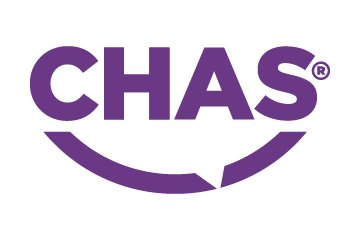When people think of credit scores, personal loans and mortgages usually come to mind. But did you know your business also has a credit score, and that it can affect how much you pay for energy?
Whether you’re a new start-up or a well-established company, your business credit score can play a major role in determining your energy rates, contract terms, and even which suppliers will work with you.
What is a Business Credit Score?
A business credit score is a number (typically from 1 to 100) that reflects your company’s financial trustworthiness. It’s calculated by credit agencies like:
- Experian
- Equifax
- Dun & Bradstreet
They look at things like:
- Payment history
- Credit utilisation
- Length of credit history
- Public records (e.g. bankruptcies or CCJs)
In the energy world, this score matters more than you might expect. It can directly impact what kind of deal you’re offered.
Business Credit Score Ranges & What They Mean
Here’s how your score may influence your energy options:
- 80 or higher (Low Risk): You’re in a strong position. Most suppliers will offer you competitive rates with minimal risk premiums.
- 40–79 (Medium Risk): You may need to provide additional information. The lower the score, the more caution suppliers will take.
- Below 40 (High Risk): Suppliers may refuse to offer you a contract, request a deposit, or charge you higher rates.
Why Energy Suppliers Care About Your Credit Score
Ever since the 2022 energy crisis, energy companies have become much stricter about who they supply. Just like any business, they want to reduce risk, and if a customer fails to pay their bills, the supplier takes the financial hit.
That’s where your business credit score comes in. It helps suppliers assess how financially reliable your company is. If your score is low, you could face higher prices, deposits, shorter contracts, or even outright rejection from suppliers.
What Else Do Suppliers Look At?
Your credit score is important, but it’s not the only factor. Energy suppliers also consider:
- Your industry (based on SIC code)
- Annual energy usage
- Number of sites
- Contract length
- Business location
- Company size
For example, if you run a cold storage warehouse (which uses a lot of energy), suppliers may require a higher credit score to mitigate the risk of non-payment.
Some pop-up type businesses which can be quite transient, like hot food takeaways, may also be asked for higher credit score or a security deposit.
Can Switching Suppliers Affect Your Credit Score?
Yes, but only slightly. When you switch energy providers, a credit check is usually run — just like when you apply for a loan. This can cause a small dip in your score, but it usually rebounds within a few months.
The bigger concern? Make sure your new supplier bills you accurately and you pay on time. Missed or late payments can hurt your score much more than the act of switching itself.
How to Check Your Business Credit Score
You can check your credit score through agencies like:
- Experian Business Express – Offers a free 3-month trial (just remember to cancel if you don’t want to pay £24.99 + VAT/month afterward).
- Equifax
- Dun & Bradstreet
Regular checks can help you stay on top of any issues, or spot errors that may be dragging your score down.
6 Tips to Improve Your Business Credit Score
If your credit score needs some love, don’t worry. Here are a few proven ways to boost it:
- Pay your bills on time – Set up Direct Debits if needed.
- Check for errors – Dispute any incorrect data on your report.
- Use credit wisely – Don’t max out business credit lines.
- Avoid multiple credit applications – Too many, too fast, can raise red flags.
- Monitor your personal credit – Especially important for small businesses or sole traders.
- Register with credit reference agencies – Help them track your payment habits more accurately.
What If Your Credit Score Is Low?
Even with a lower score, you can still get energy contracts — you just need to be smart about how you approach it. Here’s how:
- Work with a business energy broker – Brokers (like Here’s the Plan) know which suppliers are more flexible with credit requirements.
- Offer a deposit or upfront payment – This can reduce supplier risk.
- Accept a shorter or fixed-term contract – This might come with tighter terms but builds a positive payment history.
- Provide extra financial documentation – Turnover, business plans, or bank statements can help show you’re stable.
- Keep improving your score over time – Stick with good financial habits and your options will expand.
The Bottom Line
Your business credit score isn’t just a financial metric, it’s a powerful tool that can influence your energy costs.
A good score opens the door to more suppliers, better prices, and longer-term contracts. And if your score isn’t where you want it to be? There are still plenty of ways to improve and get the best deal possible.
Need help understanding your score or finding a better energy deal?
Our team is here to guide you through the process — no jargon, no pressure. Just solid advice to help your business save money and thrive.
☎️ 01738 474630
✉️ theteam@herestheplan.co.uk










